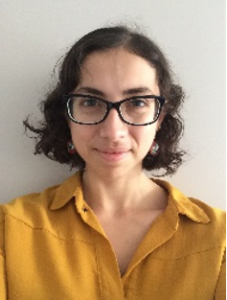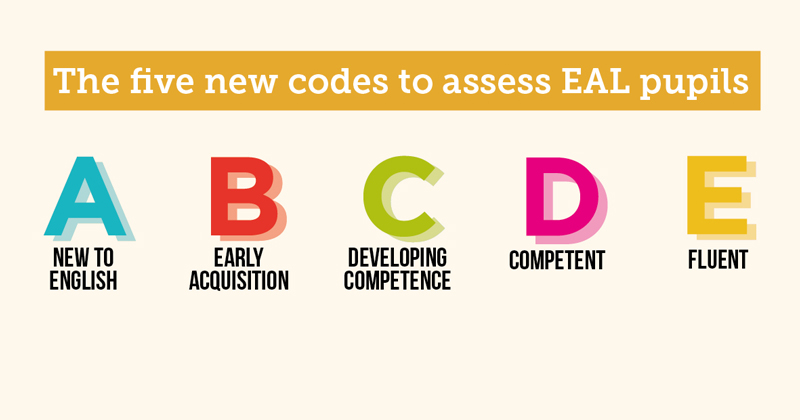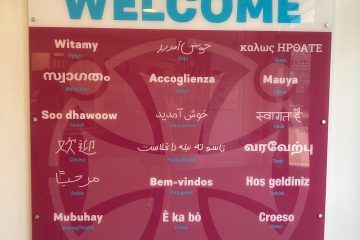Whole-School Assessment of EAL
A blog by Bathsheba Wells Dion – English Teacher and newly appointed EAL Lead Teacher at Bristol Cathedral Choir School (secondary) – 12.09.22


Our school’s multilingual context
As a school in the centre of Bristol, we are lucky to have a wide mix of languages, cultures, and backgrounds represented amongst our students. Almost a quarter of our students in years 7 to 11 have English as an Additional Language. While most of these students have high levels of proficiency in English, the arrival of refugee students from both Ukraine and Afghanistan has prompted us to take a more detailed look behind the label. We want to question how much language comprehension might be influencing other areas of students’ experiences at school, from behaviour to attainment.
The need for whole-school EAL assessment
To do this, we needed to conduct a whole-school assessment of all of our EAL students. As experts in both their students and their subjects, our teachers are well-placed to offer insight into EAL students’ proficiency with English across the curriculum. But it would be time consuming and complex for every single teacher to be reviewing every EAL student against the full Bell Foundation framework. Especially at the busy beginning of a new school year, we want to be reducing the impact on teacher workload, not increasing it. We needed a quick and simple way to collate that expertise, and to identify students who might be struggling with English.
Developing a workable process for teachers
To make this process as simple as possible, I designed a Google Form to collect responses about all of our EAL students from their teachers. At the top of the form, I summarised the Bell Foundation overviews of each band, from A (lowest level of English proficiency) to E (highest level). First, teachers state which student and subject area they are recording for. Then, all they need to do is tick the band that is the best fit for each student for each category – reading, writing, speaking, and listening – against a simple description of that band.

From English proficiency data into action
These responses can be exported as a spreadsheet, in which tutors and I can search for individual students and see an overview of their experiences across the curriculum. From this, students’ tutors can quickly assess which band is the best fit overall, taking into account feedback from classroom teachers. Once they have identified the band students are in, I can identify students who are finding English difficult – with a particular focus on students at Band C or below – and can design interventions to support them to develop their English language proficiency and to access the curriculum.
Valuing multilingualism in our school
We hope that this greater awareness of the languages students are speaking also means we can be more proactively celebratory of the skills and understanding they bring to school. Through finding opportunities to celebrate a variety of languages in the curriculum, through visual displays around the school, and through the way we encourage students to translanguage and to translate concepts, we can use the insight this assessment gives us to ensure we are recognising and valuing the language skills that bilingual students have.
FREE Resource: Click here for Bathsheba’s EAL Assessment Summary document (based on The Bell Foundation’s EAL Assessment Framework) which she developed and used to create her Google form.
NB This work arose from Better Bilingual consultancy with Bristol Cathedral Choir School in Spring/Summer 2022, in collaboration with Esther Messinger, Deputy Headteacher (Quality of Education – Years 7-11). As well as consultancy support to develop a whole school Ethnic Minority Achievement (EMA) Action Plan, Better Bilingual provided a staff meeting on welcoming ‘New to English’ students on 14th March and an EAL INSET for subject teachers on 5th September 2022.
Sign up for our Better Bilingual EAL Network Meeting (Autumn 2022) on Wed 28th Sept (4-5pm, online) to hear Bathsheba speak further about her work to develop a whole-school approach to tracking students’ English language proficiency.



0 Comments